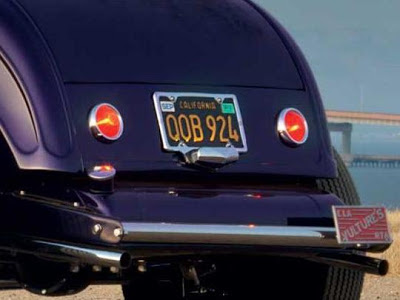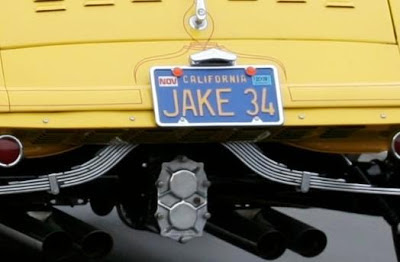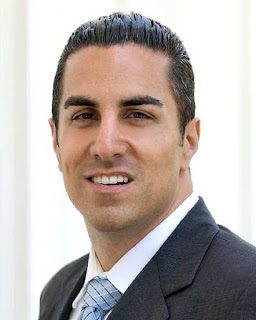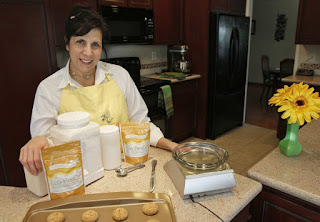BY ALEXANDRA BJERG
Did you ever open a cookie stand hoping to rake in enough cash from sales to sympathetic neighbors to purchase the latest toy? If you answered yes, up until last year, you were breaking the law (!).
That's right, selling homemade food made in unlicensed commercial kitchens was prohibited, unless for charity, by statutes and local ordinances, many of which had been unchanged since the 1920s. Two San Francisco children even had their brownie stand shut down for lacking the appropriate permits.
But thanks to a new law that went into effect January 1 of this year, AB 1616 or the California Homemade Food Act, the sale of certain homemade foods to grocery stores, restaurants, and even directly to customers has been legalized.
In 2011 the Los Angeles County Health Department shut down baker-turned-activist Mark Stambler's small-scale bread-making business after the Los Angeles Times published a profile of Stambler and his homemade award-winning bread. Upon reading the story and learning of the numerous regulatory barriers faced by cottage food entrepreneurs, Stambler's Assemblyman Mike Gatto (D-Silver Lake), seized the opportunity to help aspiring artisan food makers legally develop small food businesses and stimulate the local economy by authoring AB 1616.
The legislation, signed by Governor Brown last fall, is designed to "remove the red tape that confines our local governments and to assist micro-entrepreneurs who want to enter the food production business but do not have the time or money to spend on a long, drawn out permitting process," said Gatto. "Creating a legal structure for the safe, in-home production of certain foods that respects the importance of public health is a sensible approach that will spark more economic activity in our local economies and in California."
The law makes it easier for aspiring entrepreneurs to launch food production businesses by removing traditional barriers to entry, such as the often crippling cost of rent, limited access to commercial kitchen space, and a burdensome permitting process intended primarily for large-scale retailers and producers, and allowing for the sale of "non-potentially hazardous" homemade foods.
Approved products include breads, cookies, granola, churros, jams, dry roasted nuts and many more delicious goodies. Sorry bacon lovers, unfortunately, most foods that require refrigeration such as meats, cheeses and custards, are not covered under the new law.
California joins a growing list of more than 30 states with similar legislation already on the books, none of which have reported any incidents of foodborne illnesses resulting from the sale of these items.
But don't start peddling Grandma's famous Snickerdoodles just yet.
To address public health concerns, the legislation includes a number of provisions that will ensure food is safe and free from contaminants. Cottage food operators (CFOs) will be required to register with the local Department of Public Health for a small fee, complete a food-safety course and pass an exam, currently in development by the California Department of Public Health, label products as homemade, and submit to a kitchen inspection verifying adherence to sanitation standards.
Having been issued one of the first permits under the law, Mark Stambler has already fired up his wood-burning brick oven and is legally baking his blue-ribbon bread for fellow Angelenos to purchase and enjoy.
With California's unemployment rate hovering just below double digits, 9.8 percent, the law is great news for residents looking for alternative ways to supplement their income.
"Starting a small food business is a solution that many refugees of the economic crisis turn to because many people are capable of making food," said the Executive Director of Sustainable Economies Law Center (SELC) Janelle Orsi in a statement, whose organization helped Gatto draft the bill.
Reducing the number of regulatory hoops entrepreneurial foodies must jump through to start a food production business provides home cooks with the opportunity to turn some spare time and a hobby into a business. The ability to forgo steep startup costs allows budding food entrepreneurs to test the waters in a relatively low-risk way before making costly investments in equipment or commercial kitchen space.
Additionally, purchasing locally sourced food rather than name brands bolsters the local economy by guaranteeing a larger proportion of sales revenue is reinvested in the community.
Large-scale producers have nothing to fear. Annual revenue is capped at $35,000 for 2013 and will rise to $50,000 by 2015, to ensure these micro enterprises remain neighborhood-based activities.
Seeking to cultivate and unlock California's entrepreneurial spirit, the California Economic Summit has prioritized streamlining regulations that would stimulate small business and economic growth. The California Homemade Food Act is an example of how thoughtful modernization of outdated regulatory processes can trigger local economic development by fostering innovation and reinvigorating neighborhood economies.
Anyone need a freelance taste tester?
You can read the rest of this article, and more, at the California Economic Summit blog HERE
Watch a video of the story behind AB 1616, and Assemblyman Gatto's fight to protect and entrepreneurs HEREMike Gatto is the Chairman of the Appropriations Committee of the California State Assembly. He represents Burbank, Glendale, La Canada-Flintridge, La Crescenta, Montrose, and the Los Angeles neighborhoods of Los Feliz, Silver Lake, Atwater Village, and portions of the Hollywood Hills and East Hollywood. www.asm.ca.gov/gatto

















.jpg)











